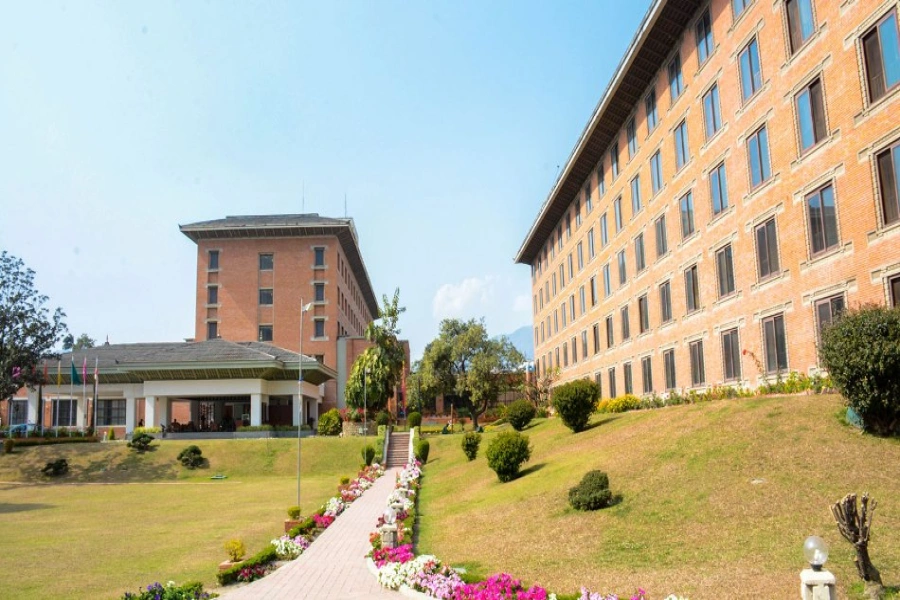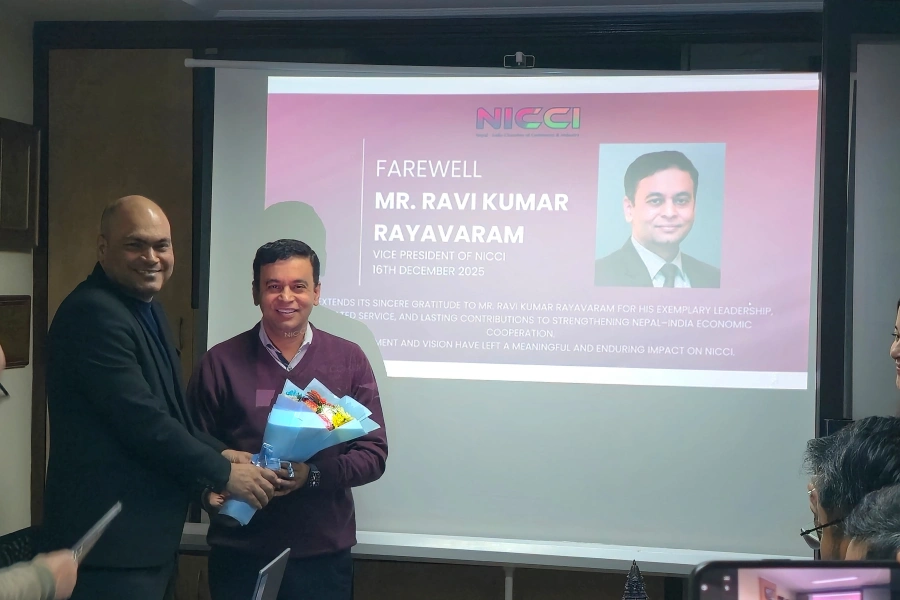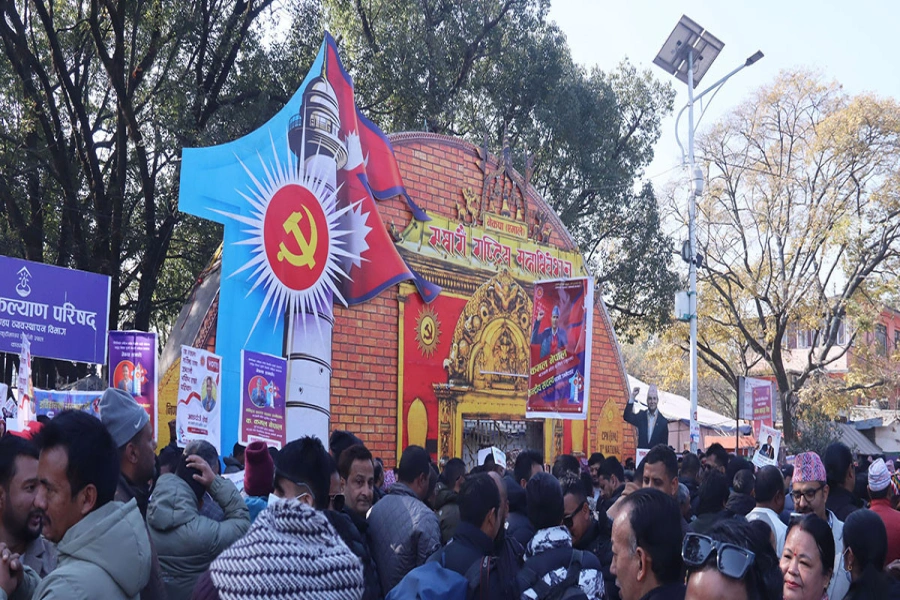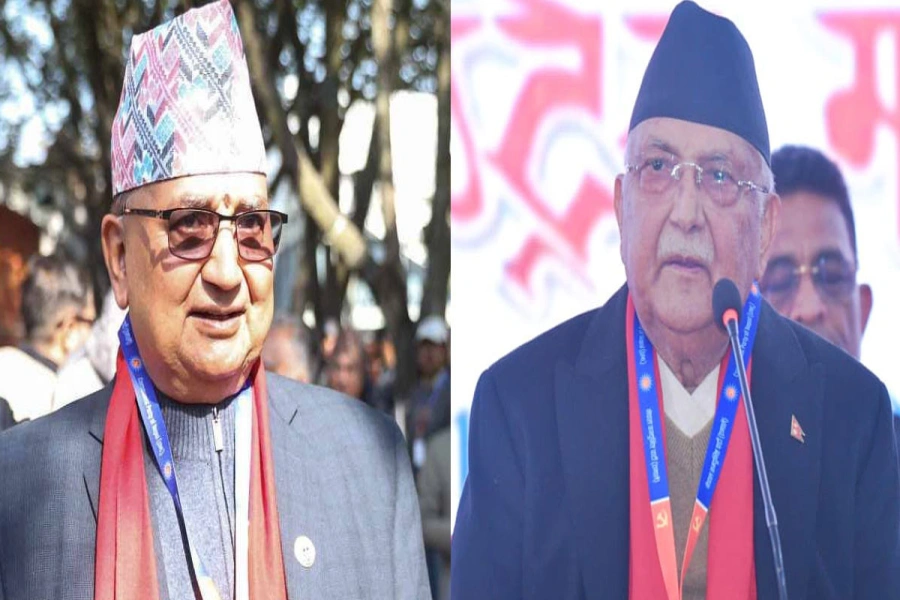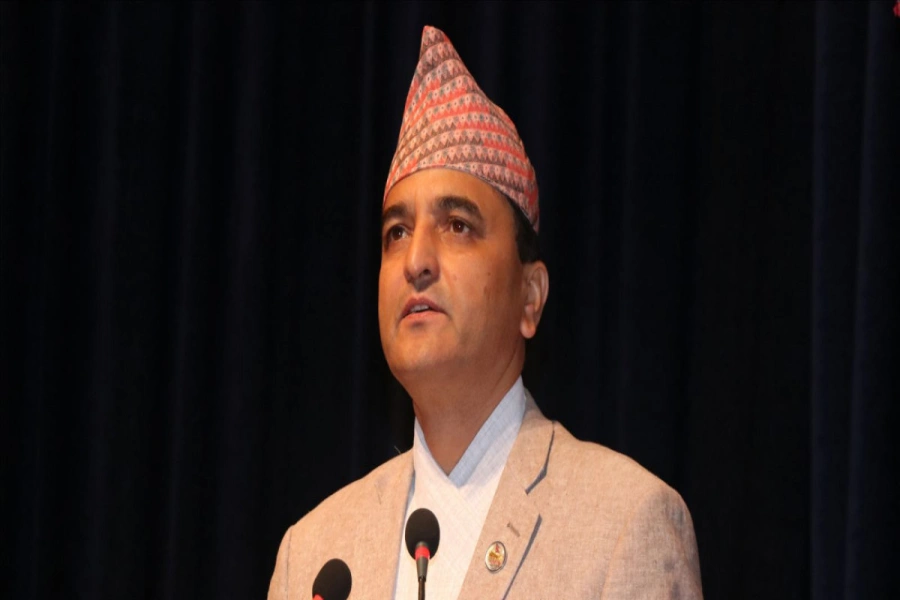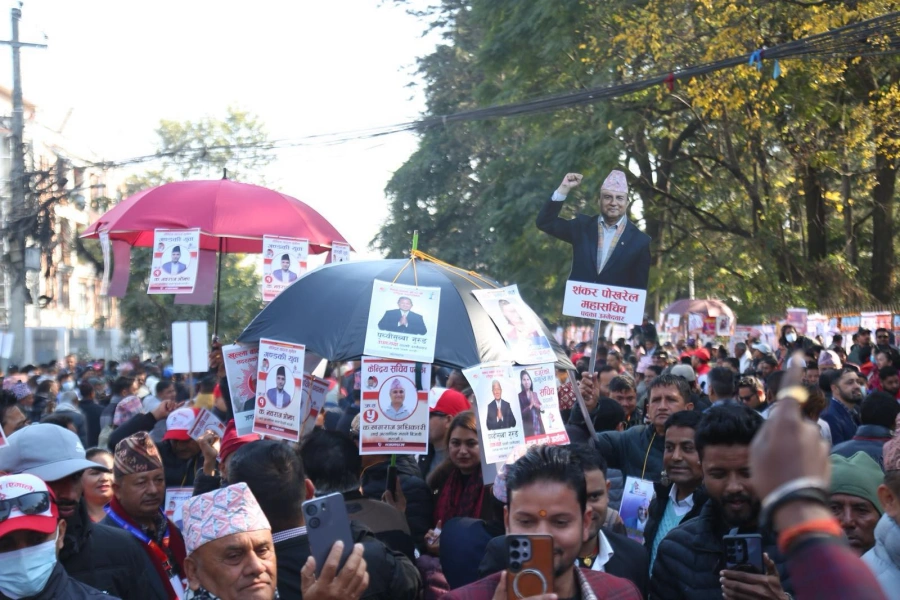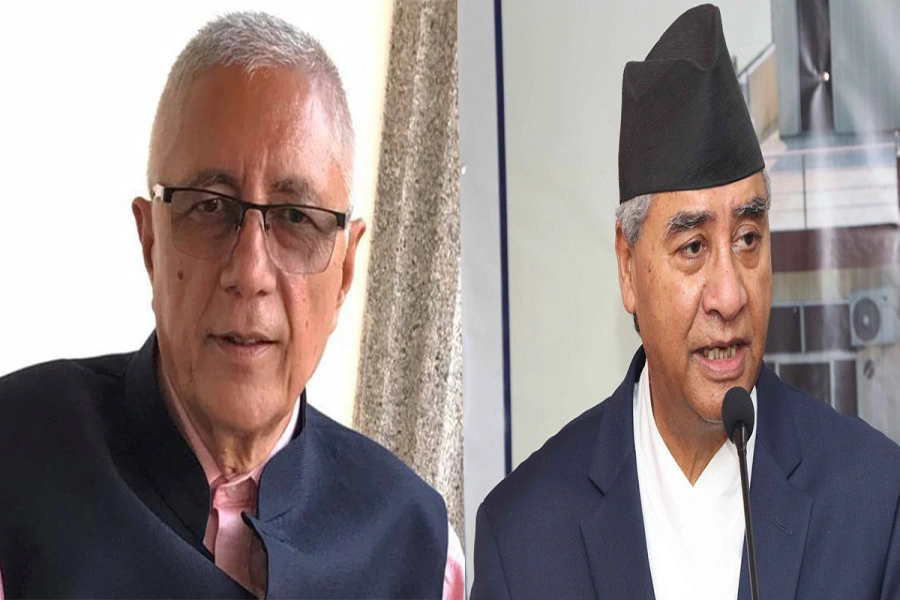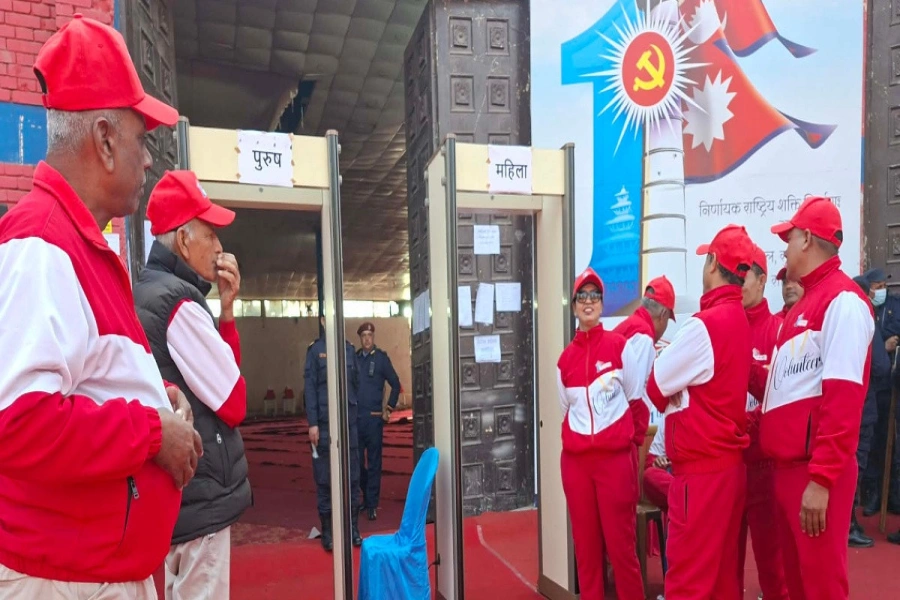Since the dawn of civilization, the intertwined paths of sports and diplomacy have played a pivotal role in shaping international relations, from the gladiatorial arenas of Ancient Rome to the inter-Hellenic competitions of early city-states. Sports diplomacy, which leverages athletic competitions to influence diplomatic, cultural, and political relations, has long been recognized as a potent tool by national leaders, foreign policy experts, and political thinkers.
From Mahabharata to Ramayana, to invasion and Britishers, the story of India and Nepal’s bilateral relationship is one of rich history and the evolving narratives. For decades, the Himalayan nation has been pivotal to India’s friendship, security and cultural heritage. With the rise of democracy in Nepal after the collapse of the bipolar world, the nature of their relationship has transformed. The 21st century has ushered in a new chapter, marked by multi-dimensional interactions, including trade and transit treaties, with Nepal looking to Indian standards for policy guidance. Yet, amid these official exchanges, the vibrant people-to-people contact and cultural exchanges have emerged as the true heartbeat of this enduring connection, weaving a tapestry of shared traditions, mutual respect, and cooperation.
In the realm of public diplomacy, the vibrant echo of sports resonates as a profound tool, bridging nations and transcending boundaries. Known as 'Sports Diplomacy,' this practice leverages the universal language of sport to fortify diplomatic and cultural ties, particularly between the spiritually rich and deeply religious landscapes of India and Nepal. With football reigning as the champion sport in Nepal, closely followed by cricket and volleyball, and hockey and cricket capturing hearts in India, these games have become more than just national pastimes. They are catalysts for unity, conversation, and cooperation. As both nations have recently woven sports into the fabric of their diplomatic endeavors, this exploration delves into the thriving, yet challenging, landscape of sports diplomacy, aiming to strengthen a historical camaraderie through the spirit of competition and mutual respect.
Sports have long been an integral thread in the cultural tapestry of India and Nepal, with their shared heritage dating back to the mid-19th century school games. The athletic traditions of both nations reflect not only their diverse cultures but also their unity in diversity. The Indian hockey team’s golden era from 1928 to 1956, which saw them clinch six consecutive Olympic gold medals, marked India’s global recognition. In parallel, Kabaddi, a sport that originated in India, has cemented its place in the country's heartlands and state traditions.
Pokhara aspiring as a water sports destination

Meanwhile, in Nepal, volleyball has flourished due to its terrain, achieving success in international events. Nepal's national sport, Dandi Biyo, reminiscent of cricket, has been a beloved pastime for centuries, symbolizing Nepalese identity. The vitality of these sports sustains the relationship between these neighboring countries, boosting athletic development for generations to come and reinforcing the cultural bonds that link India and Nepal.
Since the dawn of civilization, the intertwined paths of sports and diplomacy have played a pivotal role in shaping international relations, from the gladiatorial arenas of Ancient Rome to the inter-Hellenic competitions of early city-states. Sports diplomacy, which leverages athletic competitions to influence diplomatic, cultural, and political relations, has long been recognized as a potent tool by national leaders, foreign policy experts, and political thinkers. The century-old history of sports diplomacy offers ample evidence of its power to transcend the competitive realm, influencing national and international objectives. This influence is exemplified by the football match that briefly united warring enemies during World War I and the intricate sports rivalries of the 20th-century Cold War era. Sports diplomacy provides a global stage, amplifying the messages of competing nations and forging long-term relationships, making it a vital aspect of modern international relations.
Global sporting events serve not only as arenas of thrilling competition but also as powerful stages for diplomatic engagement and policy influence. These platforms showcase national prowess and foster dialogue akin to high-level diplomatic meetings, yet come with the added benefit of cost-effectiveness. Recent events have underscored sports' unique ability to shape international relationships and project national images, making each game much more than a contest of skill—it becomes a strategic play in the complex game of international politics. Through the universal language of sport, nations find a compelling pathway to mutual understanding and long-term alliances, illustrating that the stakes are as high off the field as they are on it.
Diplomacy, at its core, is a dialogic endeavor aimed at resolving disputes between nations. Sports diplomacy, however, introduces a new, universal language to this dialogue—one that transcends politics and speaks directly to people’s hearts. Through the non-verbal communication of a game, sports can bridge cultural divides, dismantle misconceptions, and create a level playing field for dialogue. The goal is to foster cross-cultural interactions that increase understanding and diminish animosity. Even when these aspirations fall short, individual encounters, such as a single match or series, can serve as effective examples of track two diplomacy, subtly shaping public perceptions and relationships between nations beyond the realm of official talks.
In the grand chessboard of international relations, India has moved its queen with a strategic play: sports diplomacy. Prime Minister Narendra Modi’s reference to cricket, following the historic participation of a Nepali player in the Indian Premier League (IPL), underscores a vibrant new chapter in India-Nepal relations. He envisions sports as a bridge that not only connects but also enhances people-to-people relations through spirited competition. Meanwhile, PM Sushil Koirala paints Nepal as a "Virgin Land," ripe with potential yet untapped due to infrastructural inadequacies. Modi's HIT formula—Highways, Information highways, and Transways—promises to be a game-changer, especially if it could extend into the realm of sports. The recurring investment conferences, despite their limited success in attracting substantial investments, have spotlighted Nepal's readiness for development, albeit the sports sector remains in the shadows. With suggestions of Nepal becoming a neutral venue for cricket matches, even for arch-rivals like India and Pakistan, the potential is immense. However, this vision awaits the nurturing through focused investments in sports infrastructure and tourism, promising to transform the playing field of international diplomacy.
The sports sector in Nepal has long struggled for government resources, but its potential as a diplomatic tool remains undeniable. Associations have held their ground, yet greater governmental support is needed to unlock sports diplomacy's true impact. At least three reasons drive nations to embrace sports diplomacy. Firstly, to reshape their global image: in a political arena rife with negative perceptions, sports offer a path to positive transformation, aligning with the Olympic Charter's goal of 'promoting a peaceful society concerned with the preservation of human dignity.' By participating in competitions that mirror fair play and teamwork, countries can shed negative assumptions and rebuild their international reputations, fostering stronger relationships and demonstrating sports diplomacy's role as a vital extension of traditional diplomacy.
Sport and diplomacy have shared a long and intertwined history, predating the formal term 'sports diplomacy.' In the 20th century, governments began leveraging sports as a tool to advance foreign policy objectives, using international sporting events to promote ideologies or challenge adversaries. While not explicitly labeled as such, these early practices laid the groundwork for what would become sports diplomacy. Today, nations engage in a myriad of formal and informal sporting activities intertwined with diplomatic efforts. But why the emphasis on sports diplomacy? Understanding its importance requires recognizing its multifaceted role in shaping international relations.
Meanwhile, in the context of India and Nepal, their relationship stands as a testament to the power of cultural and historical bonds. India has long played the role of a supportive elder sibling, fostering deep-rooted connections rooted in shared heritage and traditions. The recent focus on India's 'Look and Act East' policy prompts critical examination, particularly regarding its implications for Nepal and other South Asian neighbors. As both countries navigate evolving foreign and security policies, regional diplomatic initiatives and Track Two dialogues emerge as crucial mechanisms for fostering mutual trust and addressing strategic challenges. These efforts underscore the enduring significance of India-Nepal relations and the need for continued cooperation amidst shifting geopolitical landscapes.
The history of academic and people-to-people exchanges between India and Nepal illustrates a mutually beneficial relationship, often characterized by reciprocity. Seminars and workshops serve as vital platforms for fostering intellectual discourse and generating fresh insights into the complex dynamics of Indo-Nepal relations. While scholars from both countries have made pioneering contributions, there remains ample room for further research and exchange of ideas to address contemporary issues. These forums not only bolster support for India's Nepal Policy but also serve to keep the bilateral relationship firmly in Nepal's national focus, acknowledging its historical significance.
Amidst the vibrant tapestry of social, religious, and cultural exchanges that have long defined the India-Nepal relationship, the significance of collective dialogue cannot be overstated. By bringing together intellectuals, social workers, businessmen, and sports personalities, these gatherings serve as catalysts for mutual understanding and cooperation. Despite India's formidable size advantage, our nations have exemplified peaceful coexistence, free from territorial ambitions. Yet, as the global landscape evolves, so too must our approach to bilateral relations. It is imperative that we seize this moment to reevaluate and fortify our partnership, drawing strength from our shared history and cultural heritage. In doing so, we can navigate the complexities of the modern world while preserving the timeless bonds that unite us.



